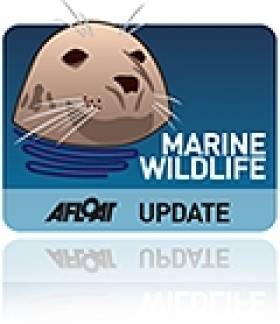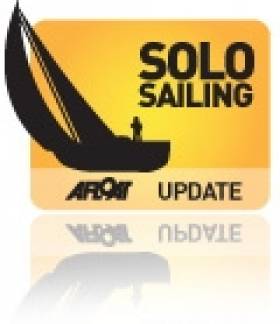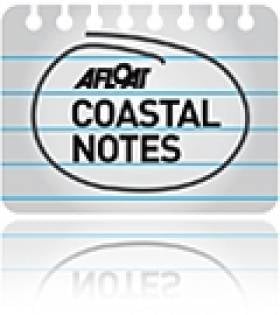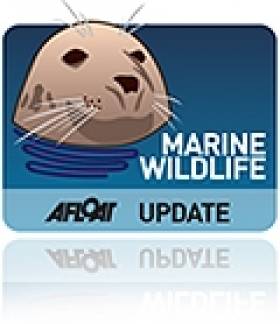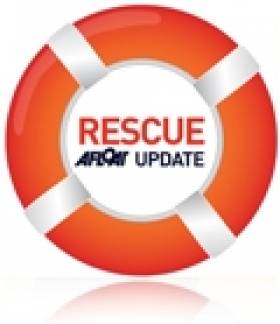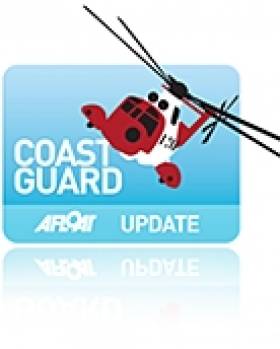Displaying items by tag: west cork
#school team sailing – Racing in the shadow of a gale warning Schull Community College won the Irish Schools Team Racing Championships on home waters at the weekend.
14–teams competed in the event drawn Munster, Leinster, Connaught and two teams from the UK.
Reduced to a one day affair due to 30–knots winds from the south east, the hardy West Cork locals beat visitors Maudlin College (MCS) of Oxford 2-0 in the finals sailed on Saturday afternoon.
Second overall was Presentation College (PBC) in Cork.
Leinster School sailing champions Kilkenny College were third.
Teams were divided into two groups from there ranking at the regional events, with Schull 1, Rochestown College, St Andrews, Schull 2, Gonzaga, Rice College and MCS from the UK in Group 1.
PBC, Kilkenny, Belvedere, Schull 3, Scoil Mhuire, Mt Anville and Morespeed from the UK in Group 2.
Racing took place in 18 of the new team racing boats supplied for the Team Racing Worlds 2011 called the TR 3.6, with little or no breakages.
42 races were run in quick succession with the top two from each group going forward to the Semi Finals and Finals.
In the first Semi Final MCS (UK) were matched against Kilkenny College and the second Semi Final PBC were matched against Schull 1
Kilkenny and PBC matched up for the play off for Silver and Bronze, with PBC taking the Silver 2-1.
Both MCS and Schull were the winners with two wins each and went head to head for the overall result both these teams have meet each other before in two Finals over the last two years at the British Schools Team racing Nationals with one win each, so this was an important final for both teams. Schull came out the winners with two wins, putting them as favourites for the British Schools Nationals in July.
1st Schull Irish National Champions
2nd PBC
3rd Kilkenny
4th Joint/ Rochestown and Belvedere
Overseas Trophy MCS
Humpback Surprises West Cork Over St Patrick's Weekend
#MarineWildlife - A juvenile humpback whale sighting off West Cork provided a St Patrick's weekend surprise for cetacean watchers.
Irish Whale and Dolphin Group (IWDG) sightings co-ordinator Pádraig Whooley writes on the discovery made off the Stags on the afternoon of Monday 18 March, which was verified by IWDG members Simon Duggan, Youen Yacob and Robbie Murphy.
Photo ID images captured at the scene allowed experts to confirm the whale is a newcomer to Irish waters, bringing the known total to 22 and continuing a growing trend.
Whooley also notes the unusual nature of the sighting, coming some months after the busy humpback whale activity in the area previously reported on Afloat.ie.
Those whales weren't seen again after that flurry of breaching and bubble-netting off Baltimore - presumably because being an older group, they were drawn south by their migratory instinct to the tropical feeding grounds.
In contrast, this likely juvenile - named Baltimore - may have opted to winter in higher latitudes to avoid competition with bigger counterparts, something that a group of humpbacks in the Norwegian fjords have also chosen to do this year.
The IWDG has more on the story HERE.
#youth sailing – David Harte of Schull Community College Sailing Club offers his views on how one secondary school in West Cork is contributing to youth sailing and the Irish dinghy scene.
I have taken on board, with interest, many of the recent letters, forums, and discussions on the present state of dinghy racing in Ireland. Whilst generating much food for thought, I would like to avail of the opportunity to mention the very positive input, that a small secondary school situated in the far south-west, contributes to the overall status of dinghy sailing, and, racing, in Ireland.
Schull Community College has 450 enrolled students, 98% of which, would come from a non-sailing background,. The College Sailing Club has 78 members. Introduction to sailing takes place in September when all 1st year students are afforded an opportunity to experience sailing. This would take the form of a fun day out with the goal that all students come back with a smile. Those interested in learning the skills, to whatever level or standard, are invited to become members of the Schull Community College Sailing Club.
The cost for membership is €100 for the year, or €150, for two, or more, family members. This fee covers Saturday sailing throughout the year (weather permitting), with instructors and coaches, and the use of a variety of dinghies to suit all skills.
Beginners are thought the skills of sailing without reference to the SBSS (ISA Small Boat Sailing Scheme). We intentionally do not use this scheme as we have found in the past, that students prioritise attainment of levels over skills.
The goals of each student are different, with some content to sail back and forth with their friends having fun, but using the proper skills to do so, while others are eager to advance to developing Team Racing skills. Progress to this stage can be achieved once the student has demonstrated a good understanding of the 5E's, and can sail around a course with little or no rudder. Saturday sailing, during the year, attracts an average of 30 sailors on a cold day to 50+ on a sunny day Team racing discipline is used at the school as it is an achievable goal with little or no personal resources required, with boats and coach supplied by the FMOEC.
"We intentionally do not use the ISA Small Boat Sailing Scheme as we have found in the past, that students prioritise attainment of levels over skills".
Students learn the advanced skills of sailing, an introduction to racing rules, and team work. A typical Saturday would involve, briefing, boat handling exercises, team racing, and de-briefing, as well as boat maintenance, and seamanship skills, etc. With team racing, students upskill rapidly, as competition for team places is continuous throughout the year. Most of the students would never have sailed outside of Schull Harbour, but, within a few years, clearly demonstrate a skill level, equal to, or above their peers from other clubs. When students reach transition year they have an extra days sailing on Wednesdays. At this stage students are divided into two groups, with one group learning to sail and the other learning the skills required to become a Dinghy Instructor. For instructorship, students attend VHF, First Aid, and Powerboat courses, and their pre-entry. At this stage, none of the students would have any SBSS levels, but, they would have the skills necessary to pass their pre-entry Most of these courses are subsidised by the FMOEC which allows the student to become an Instructor, without the burden of recourse to personal resources. Mainstream costs to fulfill all courses required to become an Instructor approximate in the region of €1,500, which, in my view, is completely ridiculous.
Most of the students who become instructors, are offered summer jobs at the centre, teaching the SBSS to the general public. Our courses run for nine weeks, and it is during this that our instructors see the downfall of the SBSS, with a sizeable percentage of students attending the courses showing more interest in the cert., rather than the skill. This in turn forces sailing clubs and centres to issue certs., as parents believe they have paid for the cert., and not the skills. Our team racing teams participate in many events throughout the year, ranging from the Munster Schools Team Racing Championships to the International Wilson Trophy.
A look at the results from last years 1st team, which consisted of six team members, of which, five came from a non-sailing background, demonstrates the achievement of the FMOEC syllabus. Irish National Champions, British U21 Champions British Schools Champions, Youth Helmsman Champion, Silver Senior Helmsman Championships, 4.7 National Champion and Silver Radial Championships. It would be easy to ascribe this success to 'an exceptional team', but, Schull teams have been Irish National Champions every year, except two, have won the British Schools Championships four times, and been in the top four over the last six years.
One may pose the question....'where do they go after they finish at Schull Community College, and, do they continue sailing?..... Follow up on team-racing participants, whether they go on to 3rd. level, or, otherwise, demonstrates a continuing healthy involvement in sailing activities. In 2011 the ITRA (Irish Team Racing Championships) were held in Schull and over 50% of the helms entered in the event were ex-Schull Community College.
In conclusion, it is my belief that the present state of dinghy racing in Schull (Ireland) is strong, and, demonstrably, getting stronger.
More on this subject of dinghy sailing here
New Solo Challenge Across The Celtic Sea
#Solo - Elaine Bunting writes on her Yachting World blog about this summer's Jester Baltimore Challenge, a spin-off of the solo transatlantic Jester Challenge for small boats.
The new event is much smaller in scale, with a route across the Celtic Sea from Plymouth (or Pwllheli in Wales) to Baltimore in West Cork starting on Sunday 16 June.
But that's intended with low cost of entry in mind - there are no fees to pay - to attract small boat sailors who've yet to test themselves in a solo challenge.
Yachting World has more on the story HERE.
Man and Child Drowned Off West Cork
#News - TheJournal.ie is reporting news of the tragic drowning of a man and a young child off West Cork in the early hours of this morning (6 March).
The bodies of the man and the three-year-old girl were recovered by emergency teams after the Goleen unit of the Irish Coast Guard was tasked to the area following a missing person's report.
Coastguard volunteers found the child on the beach but attempts to resuscitate her were unsuccessful. The body of the man was later discovered in the shallows by the Baltimore RNLI lifeboat.
It's being suspected that the man and the young child entered the water.
TheJournal.ie has more on the story HERE.
Whale Watch Tour Firm Gets Digital Boost
#Business - A West Cork whale watching tour operator has been announced as the third winner of the Eircom Digital Boost initiative for 2013, as Business & Leadership reports.
Union Hall-based Whale Watch West Cork now has the opportunity to redesign its website, and also wins a strategy day with digital and marketing experts from the Eircom Expert Panel to provide consultation specific to their business, plus a place on the SureSkills Diploma in Digital Marketing and a telecoms package for one year, all to the value of €10,000.
Established by conservationist Nic Slocum, the small business is one of most popular operators in the region in an industry that has become a major tourism magnet since the Government declared our coastal waters as a whale and dolphin sanctuary in the early 1990s.
Operating the company for a decade, Slocum says his business "is currently 75% reliant on the internet so improving our online and social media presence is hugely important."
He added: "By having an up-to-the-minute digital strategy and a stronger online presence, we'll be in a much improved position to broaden our customer base and we are very excited about getting on with it now and implementing our new and improved global online strategy."
Gary Disley, marketing director with Eircom Business and a member of the Digital Boost Expert Panel, said that the Whale Watch West Cork team "have a huge passion for whale and dolphin conservation and know what whale watchers want. Winning Eircom’s Digital Boost will practically equip Nic and his crew to maximise their potential and help them build the business."
Digital Boost is Eircom’s initiative to help SME owners increase their digital presence and maximise their online potential. The scheme offers practical guidance and tips to boost online enterprise, and is to open to all small and medium business owners, with or without an online presence.
Windy City Premiere For Short Film Shot in West Cork
#CoastalNotes - A new Irish short film shot on location on the south-west coast will have its premiere in Chicago this weekend, as the Southern Star reports.
The Blow-Ins is a 15-minute adventure comedy that was shot in Courtmacsherry, Kilbrittain and other picturesque coastal spots in West Cork.
It fictionalises story of the notorious Kilbrittain whale that washed ashore in 2009, as a family of 'blow-ins' from the capital attempt to rescue the stranded cetacean.
Written and directed by CJ Scuffins for Story Factory, The Blow-Ins will premiere at the 14th Chicago Irish Film Festival from Friday 1 March after its recent acclaim at the recent Corona Cork Film Festival.
The Southern Star has more on the story HERE.
West Cork Weekends Will Bring You Closer To Marine Wildlife
#MarineWildlife - If you've ever wanted to get closer to Ireland's marine wildlife, a new series of weekend excursions in West Cork may be just the ticket.
The Southern Star reports on the 'Discover Wildlife Weekends' being run from Rosscarbery by local company Ireland's Wildlife starting this April, where those taking part will be led by expert guides to explore the coastal region and have the best opportunities to spot the many species of whales and dolphins that visit our shores.
Weather permitting, the weekends will also involve some offshore whale watching in the company of 'whale watch supremo' Colin Barnes and the Irish Whale and Dolphin Group's (IWDG) sightings co-ordinator Pádraig Whooley.
And birdwatching will also be a feature, as West Cork is a hotspot for our feathered friends - from merlins and peregrine falcons to coastal waders and more exotic fowl that skirt our coasts on their spring migrations.
The Southern Star has much more on the story HERE.
Meanwhile, marine sector stakeholders have expressed their concerns over the designation of six new offshore marine areas by the National Parks and Wildlife Service.
As previously reported on Afloat.ie, the six sites at Blackwater Bank in Wexford, the West Connacht coast, Hempton's Turbot Bank in Donegal, the Porcupine Bank Canyon off Kerry, the South-East Rockall Bank, and the stretch from Rockabill to Dalkey Island off Dublin have been proposed for designation as Special Areas of Conservation (SACs) to protect marine habitats and species listed on the 1992 EU Habitats Directive.
But at a recent meeting at the Irish Farm Centre in Dublin, a coalition of fish farmers, fishermen and marine energy stakeholders have hit out at what they characterise as "the appalling handling of inshore designations since the 1990s by the State", which they claim "has resulted in hundreds of job losses and a flight of serious investment" from Ireland's coastal areas.
“Our experience of the Irish Government’s application of the EU Habitats Directive has been a saga of mismanagement, foot dragging and buck-passing which has left over 500 fish farming licences in limbo for over 10 years and a backlog of red tape and bureaucracy which could see producers waiting until 2020 and beyond for simple renewals which are vital to underpin their businesses," said IFA aquaculture executive Richie Flynn.
"These new offshore SACs will have the same effect of preventing any fishing, marine energy or aquaculture being carried out in these areas if left in the hands of the same agencies to manage."
Five Rescued From Stranded Fishing Vessel Off West Cork
#Rescue - The Irish Times reports on the rescue of five fishermen of West Cork this morning (21 February) after their fishing trawler was stranded in strong coastal winds.
RNLI Castletownbere's lifeboat crew responded to the trawler Anders Nees after its propeller fouled some 6km south of Bere Island in the early hours.
The stricken fishing boat was subsequently towed back to Castletownbere.
Fisherman Dies Of Head Injuries Off Kinsale
#Coastguard - The Irish Times reports that a fisherman has died after sustaining head injuries in an incident off the Old Head of Kinsale last night.
The man, one of three crew on the West Cork-based fishing trawler Liberty, is believed to have died from his injuries on board the vessel.
According to TheJournal.ie, the Courtmacsherry RNLI lifeboat and Irish Coast Guard helicopters from Shannon (Rescue 115) and Waterford (Rescue 117) were all scrambled to the scene.
The deceased was airlifted by Rescue 117 to Cork for transfer to hospital, while the remaining crew returned to Kinsale this morning with the lifeboat crew.
It is thought that the accident involved trawling wires on board the fishing boat.



























